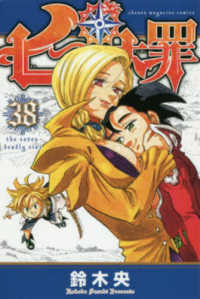- ホーム
- > 洋書
- > ドイツ書
- > Humanities, Arts & Music
- > Religion & Theology
- > christianity
Full Description
However turbulent and virulent Christian-Muslim Relations may have been throughout the centuries it does not mean that each side did not take the time to evaluate and appreciate each other's theological dogmas. Felipe Boechat Asseruy Silva shows that although Christians were subjected to constant attacks and invasions by the "Turks" for multiple centuries, they eventually (Early Modern Period) sought to refine their thinking about Islam and evaluate its theological tenets in a semi-dispassionate form and to provide a large-scale reply. In the Medieval period in-depth analysis of Islam, from a purely theological/philosophical point of view, were rare. Most publications frequently resorted to the use of offensive and inaccurate language, which, at times, fomented a disagreement between the parties based not on real theological differences - besides the obvious political differences -, but on imagined ones. This volume shows that Post-Reformation Reformed Orthodox theologians, especially those from the Dutch Republic, after having access to a long legacy of Christian-Muslim written publications collected by Dutch Universities, were able to build much more refined arguments and indeed present well informed apologetical, theological and historical arguments against Islam. The author also shows that the intense commerce between Christian and Islamic nations and the contemporary flourishing of orientalist studies in the Dutch Universities contributed to the formation of an intellectual arena that was willing to overlook past animosities and focus on the theological differences, addressing them as such.








